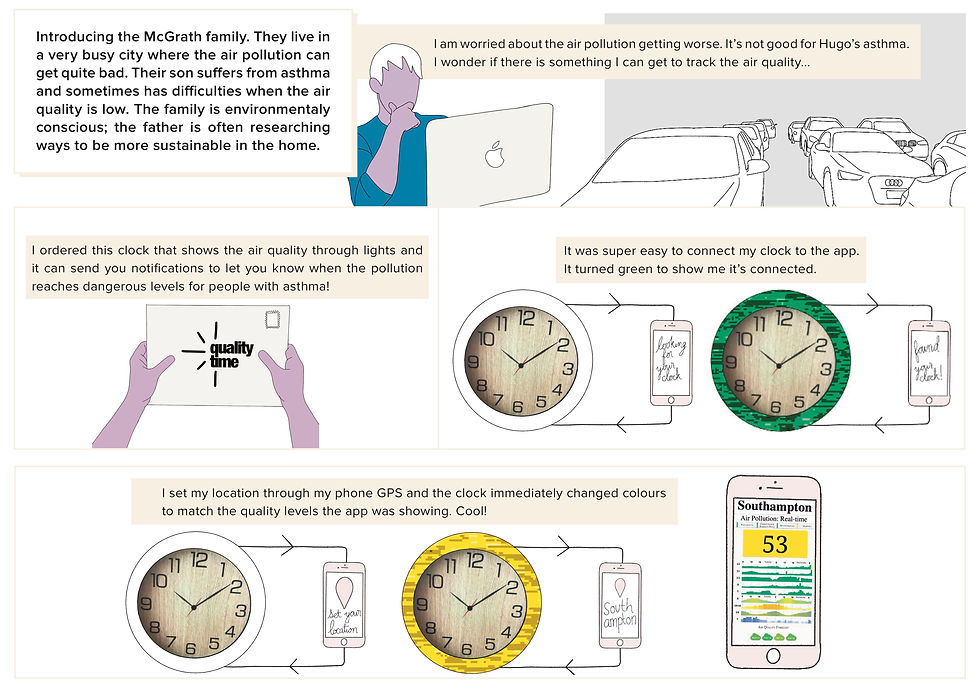003 - POLLY CURTIS
- tiffanybachelet
- Oct 23, 2019
- 3 min read
Updated: May 4, 2020
The Future of Journalism.
I recently attended a talk by Polly Curtis, former UK editor-in-chief of the Huffington Post and previously UK director of media at the Red Cross and digital editor of The Guardian. She is now Editor/Partner at Tortoise Media, who tackle the overwhelming information thrown at us every day by providing a slow stream of quality stories rather than a large quantity of shallow breaking news.
The talk explored the future of journalism and how society is affected by the burgeoning information divide between those who pay for news and those who rely on free services that are driven by algorithms. This interesting and relevant topic is currently hugely debated, especially regarding news coverage of climate change. Since the media has a direct effect on public opinion, many argue that the lack of representation portrays an inconsequential attitude and is equivalent to denying it. Not only this, but a large proportion of climate related articles are painted in a negative and dooming light, which don’t actually touch on the science behind it or the solutions needed. This can push the public to feel hopeless, helpless and to disengage.
Digitalisation has had a massive impact on news coverage. From 2007 to 2017, the number of journalists dropped from 23000 to 17000, and with that, their average pay also suffered massively. Previously, advertising had been the main source of income for journalism. Digitalisation has now almost entirely drained this source of income. This has impacted Public Interest news and therefore quality. Public interest news discusses the local community and their portrayal and accountability. According to Polly, without this accurate and fair representation, there is a democratic deficit and power is left unchecked, which is serious in this society.
Another issue with the digitalisation of news, is that people can live in digital bubbles, where they may never see Public Interest news. They might see headlines, but feel no obligation to click any further and read full article or engage with it. She talks about un-used audiences. This term was first heard by her at Huffpost, an American news and opinion website and blog specifically for those who think “news isn't for them”. The term unused is derived from the term “unbanked” ; in an economical way, people who don’t have bank accounts are those who are cast out of the economic system (they are unable to have a job or rent a flat etc) and therefore, society. Local communities who are lacking the journalists to listen or represent them in news are called the un-used. The fact that this exists demonstrates that there is a problem present, as healthy democracies rely on healthy new habits and engagements.
Using the research done by Reuters and Ofcom, Polly was able find out more about the demographic gaps ; not just where there is no journalism, but exactly who is and isn’t getting access. She found that there are huge parts of the UK where there really isn't valuable scrutiny methods ; very few people are held accountable in these communities.
So who are the unused in the uk? Who is not getting good access to news?
There is very little evidence about these people, since most research is done through and about those who get access to and read the news. But when you look to see who is missing, they are younger, poorer and less likely to be in work or educated, resulting in a massive class gap in news consumption. This is further made unequal through the digitalisation of the information pool. More information is made available now than ever before, but is engaged with less and less.
“Instead of democratising information, there is now a risk that we are exasperating the gaps in democracy in digital journalism.” Polly Curtis
Times and other high end newspapers have the ability to charge a subscription fee, as their targeted audience is more wealthy. However, this simply just widens the “access to information” divide. Although they are getting more money and therefore potentially producing better journalism, it is available to fewer and fewer people. These newspapers are becoming exclusive and inaccessible.
But without some form of income that isn’t advertising, it’s really hard to do quality public interest news.
Huffpost is now being sold, as they are just not making enough money, unfortunately this means they will certainly be chasing advertising money and scale rather than the quality important stories and public interest news.


Comments